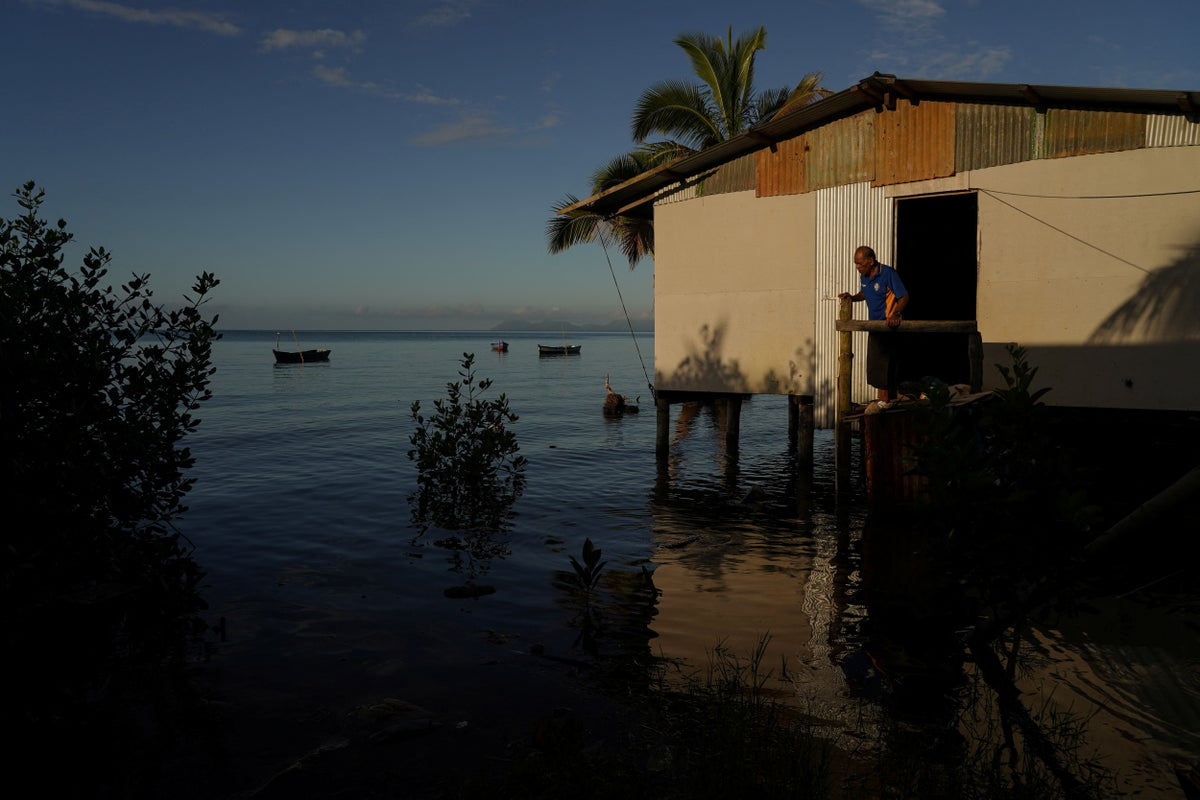
Boats moor next to living rooms on Fiji’s Serua island, where water breaches the seawall at high tide, flooding into the village. Planks of wood stretch between some homes, forming makeshift walkways as saltwater inundates gardens.
Village elders always believed they would die here on prized land where their chiefs are buried.
But as the community runs out of ways to adapt to the rising Pacific Ocean, the 80 villagers face the painful decision whether to move.
Semisi Madanawa, raising three children who wade through playgrounds, says that with the flooding, erosion and exposure to extreme weather, the village must relocate to Fiji’s main island to secure a future for the next generation.
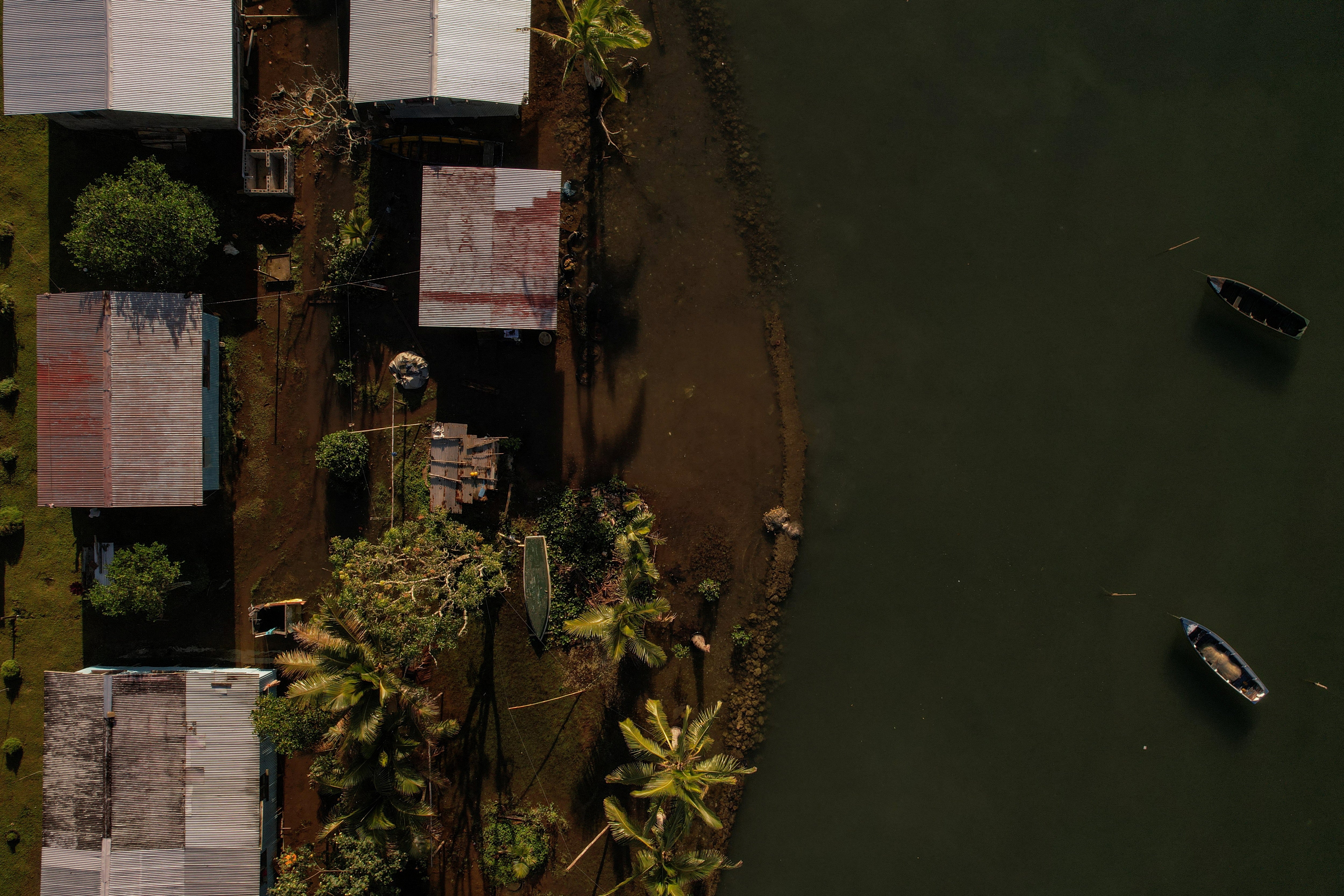
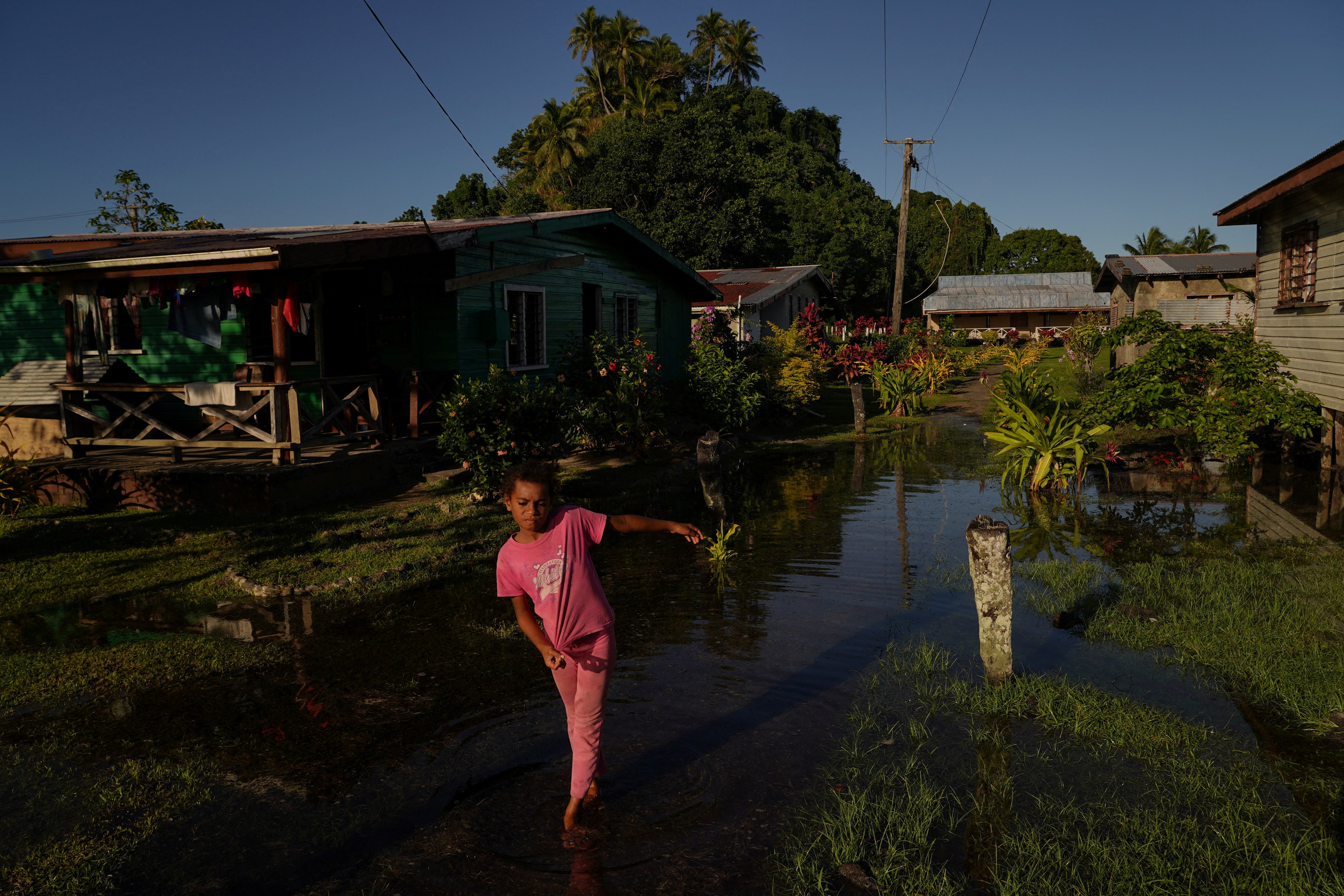
Village elders are resisting, wondering if land reclamation might stop the sea from taking Serua island’s homes and ancestral burial sites, he says.
“It takes time for an idea to settle in the hearts of us human beings so we can accept the changes that are coming,” says Mr Madanawa, 38. “Climate change is happening and we need to make a decision.”
Serua island is one of many coastal villages making difficult decisions about their future, seeking government assistance for expensive projects to adapt or move, say Fiji government officials.
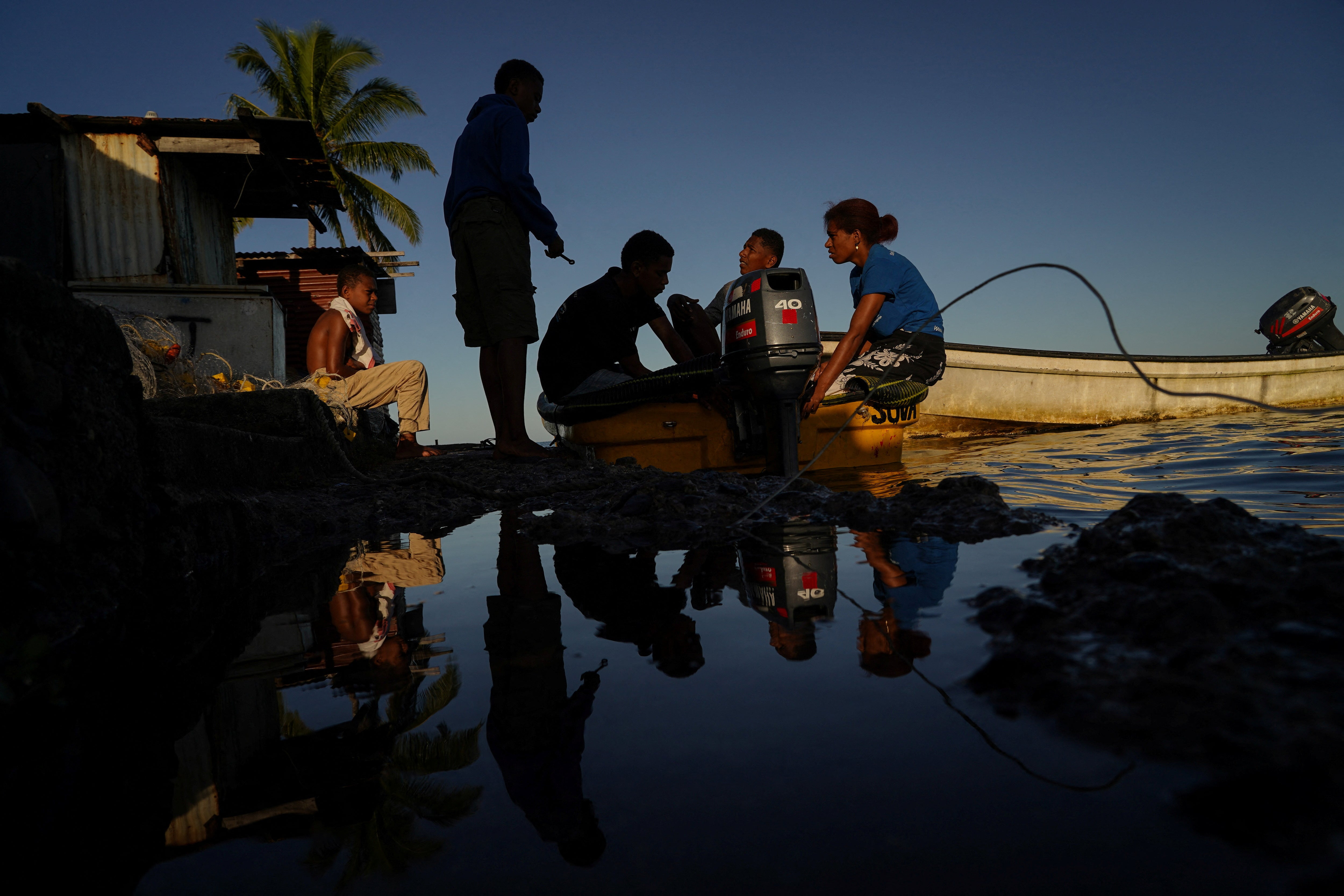
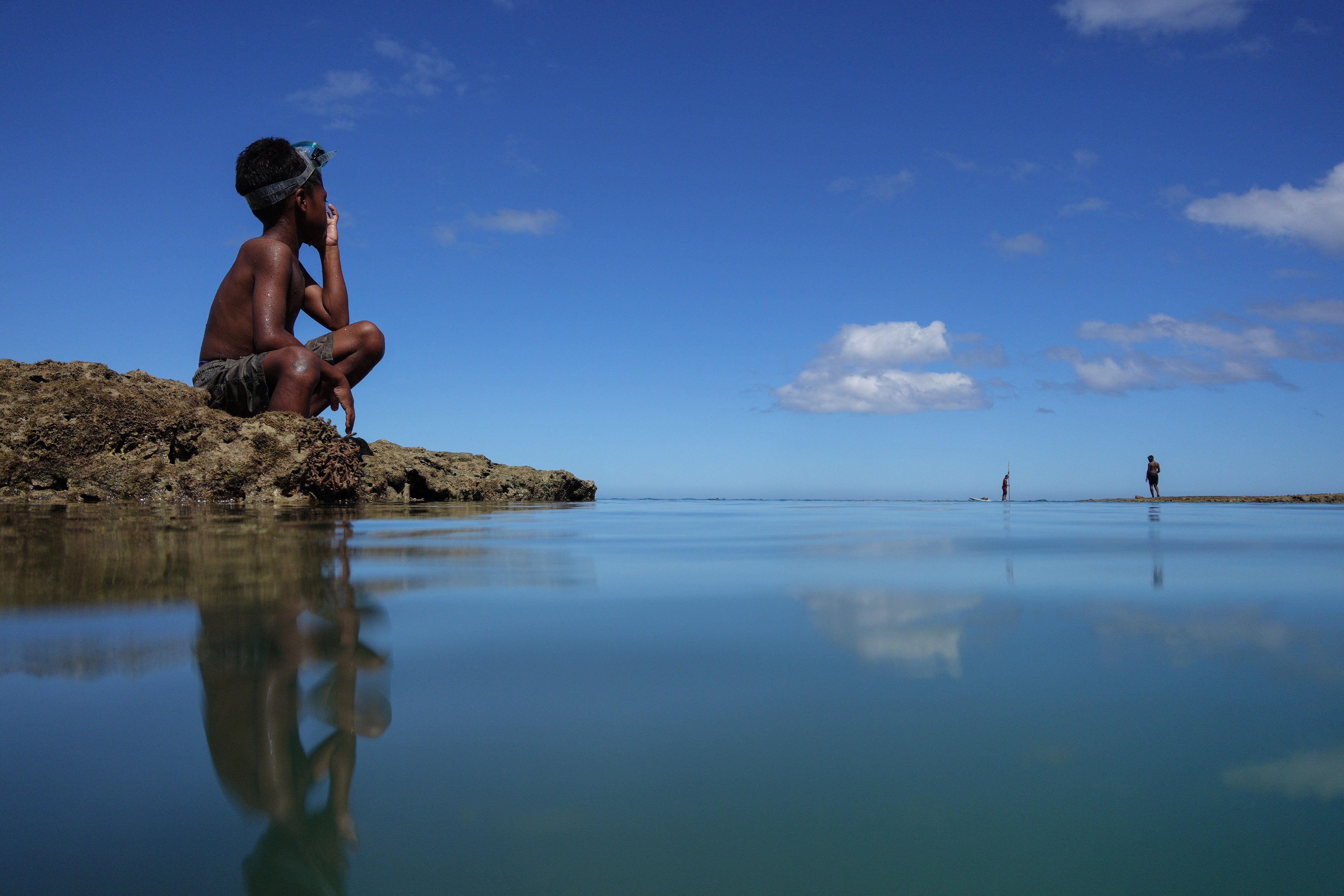
Leaders of 15 low-lying Pacific island nations declared climate change their “single greatest existential threat” at a mid-July summit in Fiji’s capital, Suva.
Facing some of the most direct effects of climate change, they want developed nations, which contribute the most to global warming, not only to curb their emissions but also to pay for the steps that islanders must take to protect their people from rising sea levels. The push has become a key battle at United Nations climate conferences.
Building seawalls, planting mangroves and improving drainage are no longer enough to save villages in many cases, says Shivanal Kumar, a climate change adaptation specialist in Fiji’s economy ministry.
“A lot of communities are in genuine crisis – they’ve been trying to survive,” he says. “The impacts of climate change have been felt for many years and there came a time where they gave up and said it was now time to move.”
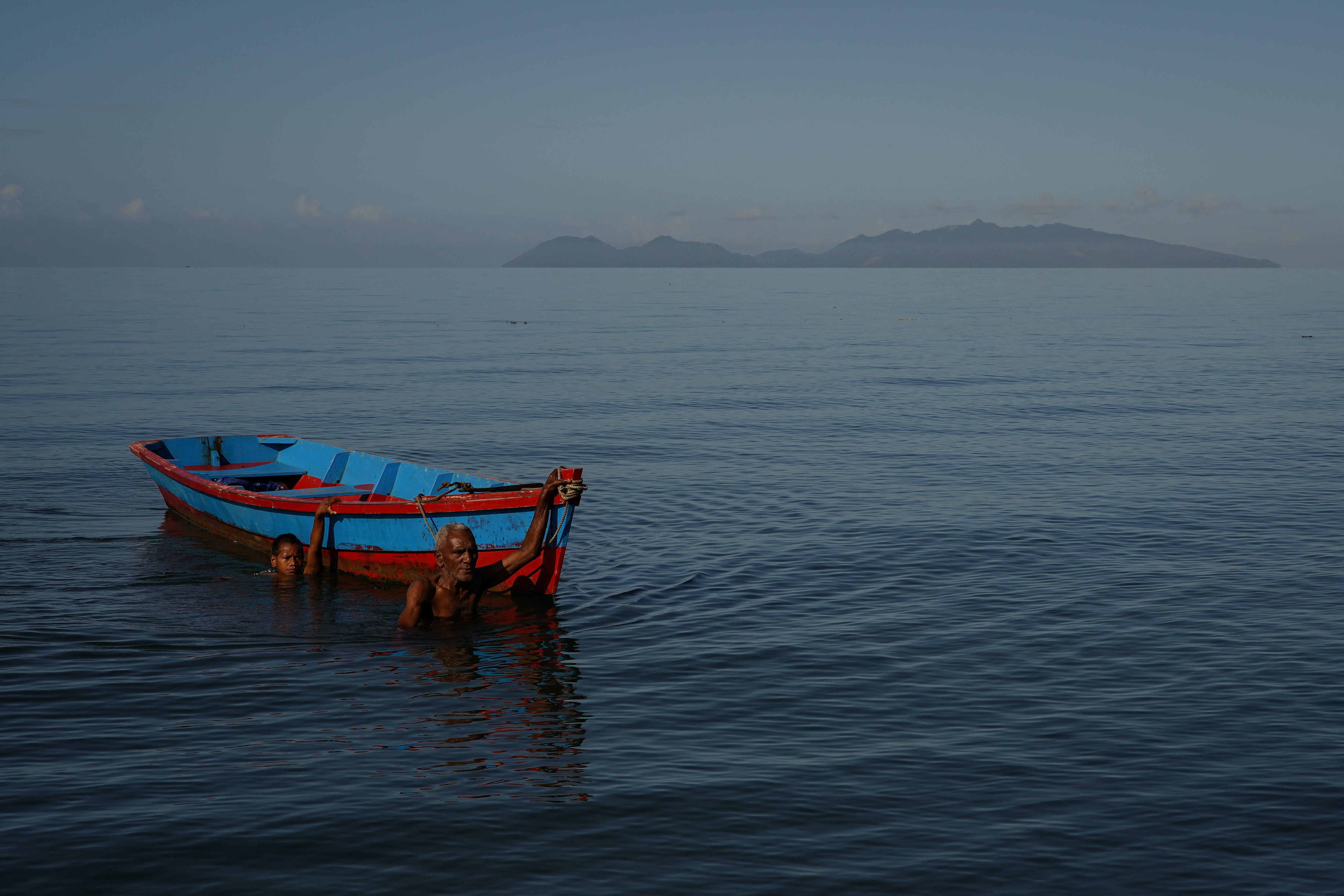
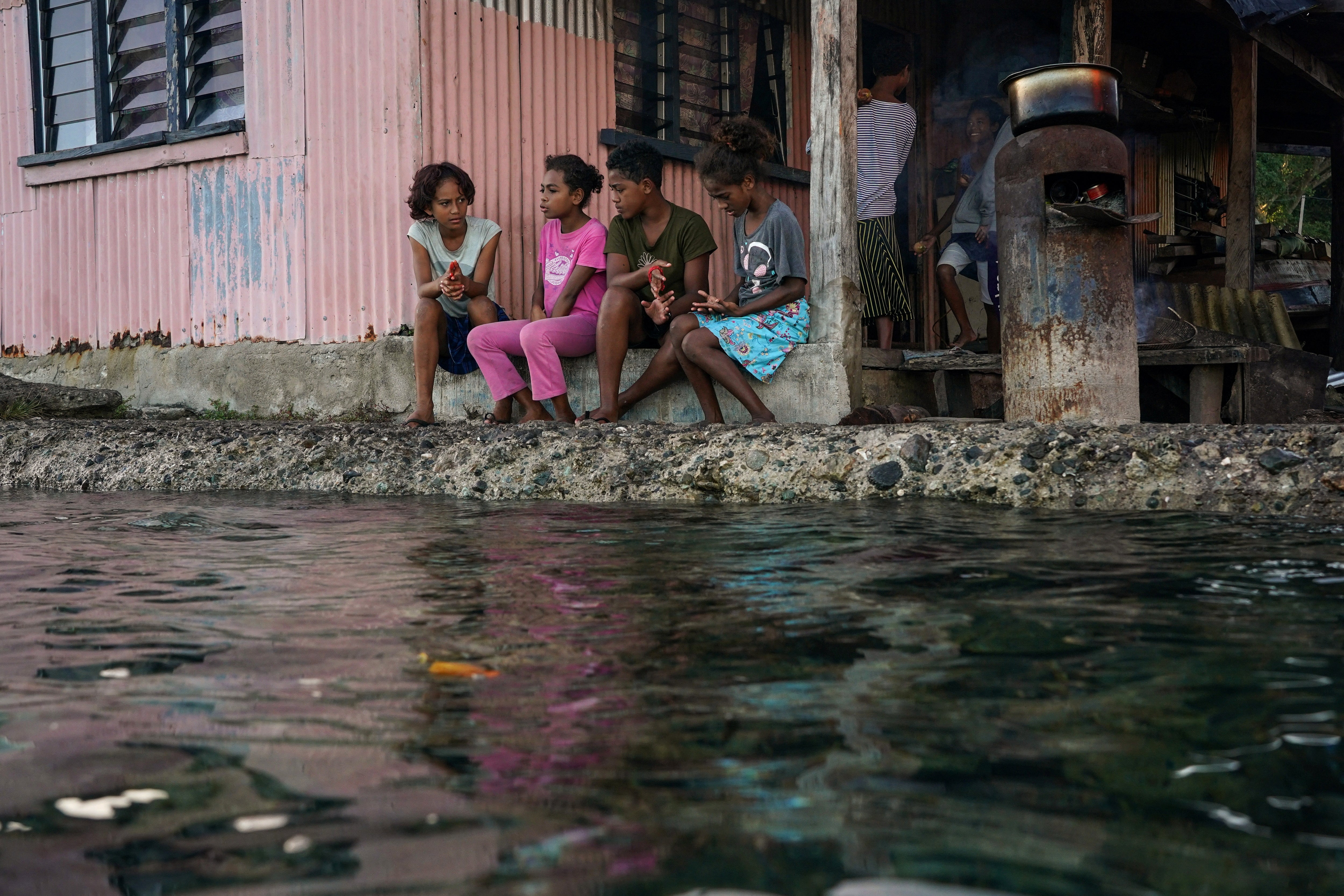
Relocation aims to preserve human rights by protecting people from rising seas, bigger storm surges and more extreme cyclones, Mr Kumar says.
But the funds pledged by developed nations at UN climate conferences do not cover relocation, only adaptation, such as building seawalls, officials say.
At last year’s global climate conference, COP26, developed nations agreed only to keep talking about compensation for the unavoidable impacts of climate change, including migration, suffered by vulnerable societies.
At their summit, the Pacific leaders called for developed nations to show meaningful progress at COP27 on a new goal: swift funding for such “loss and damage”.
The president of COP26, British politician Alok Sharma, said in Suva on Wednesday that he understood the disappointment of Pacific villagers on the front line of climate change.
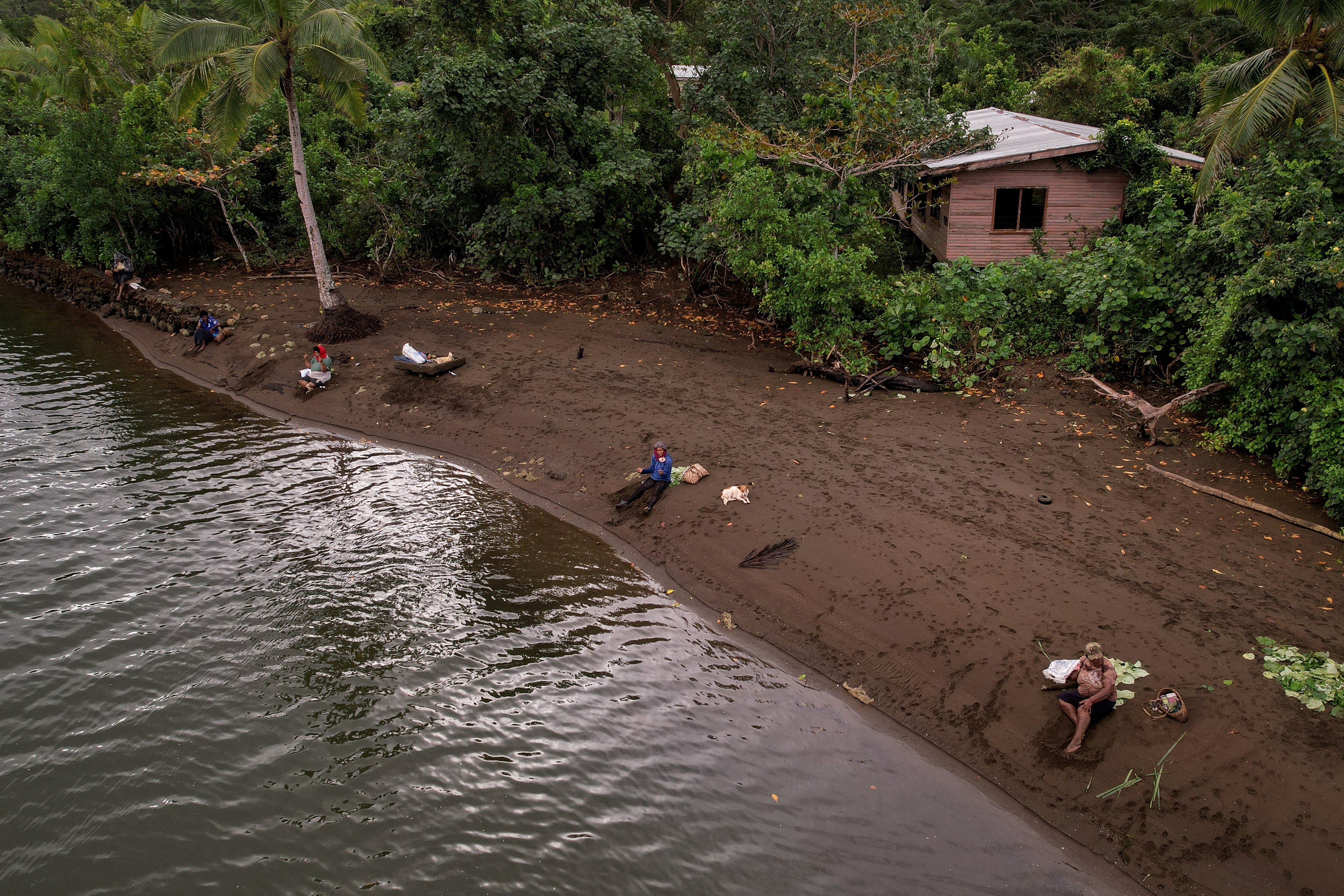
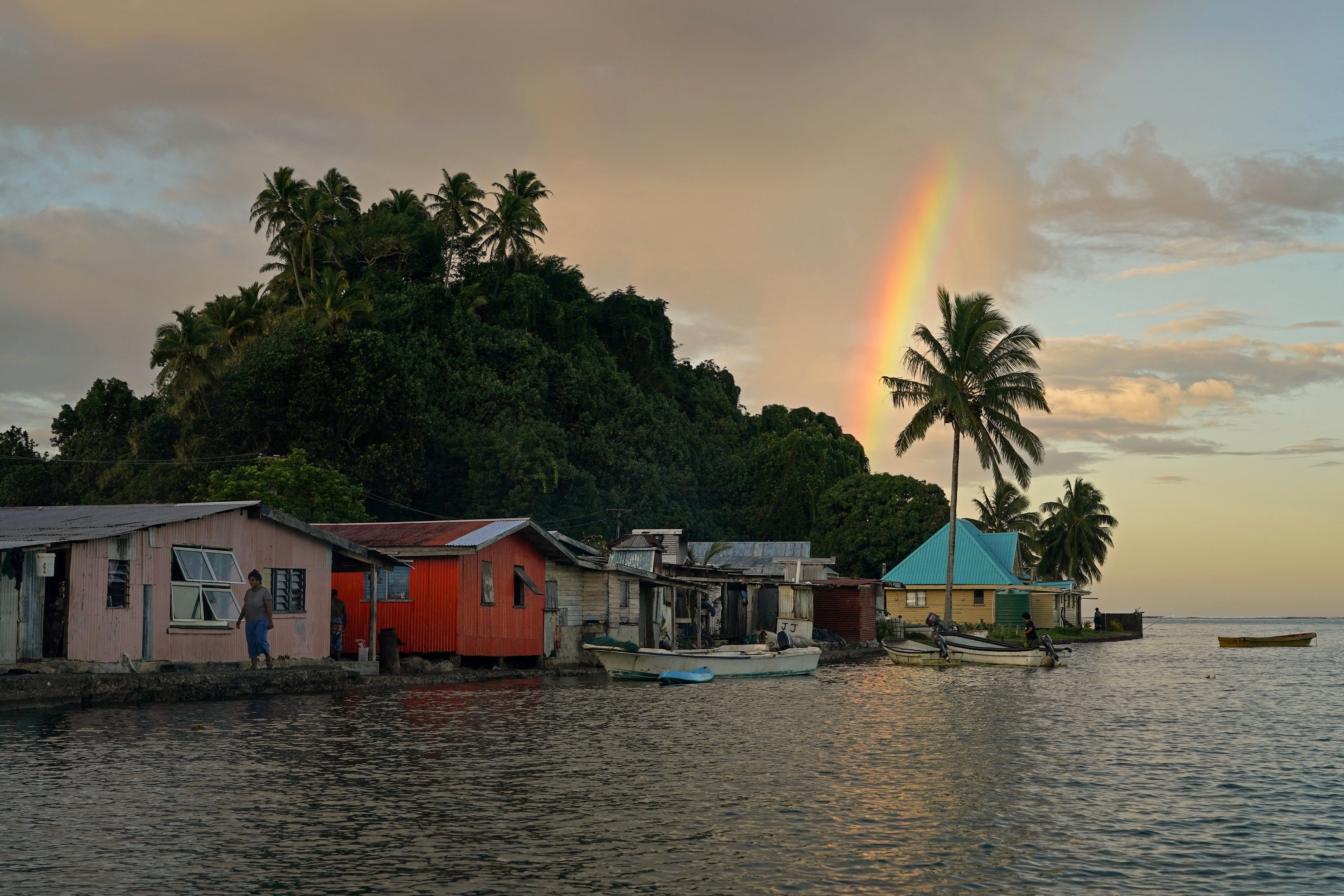
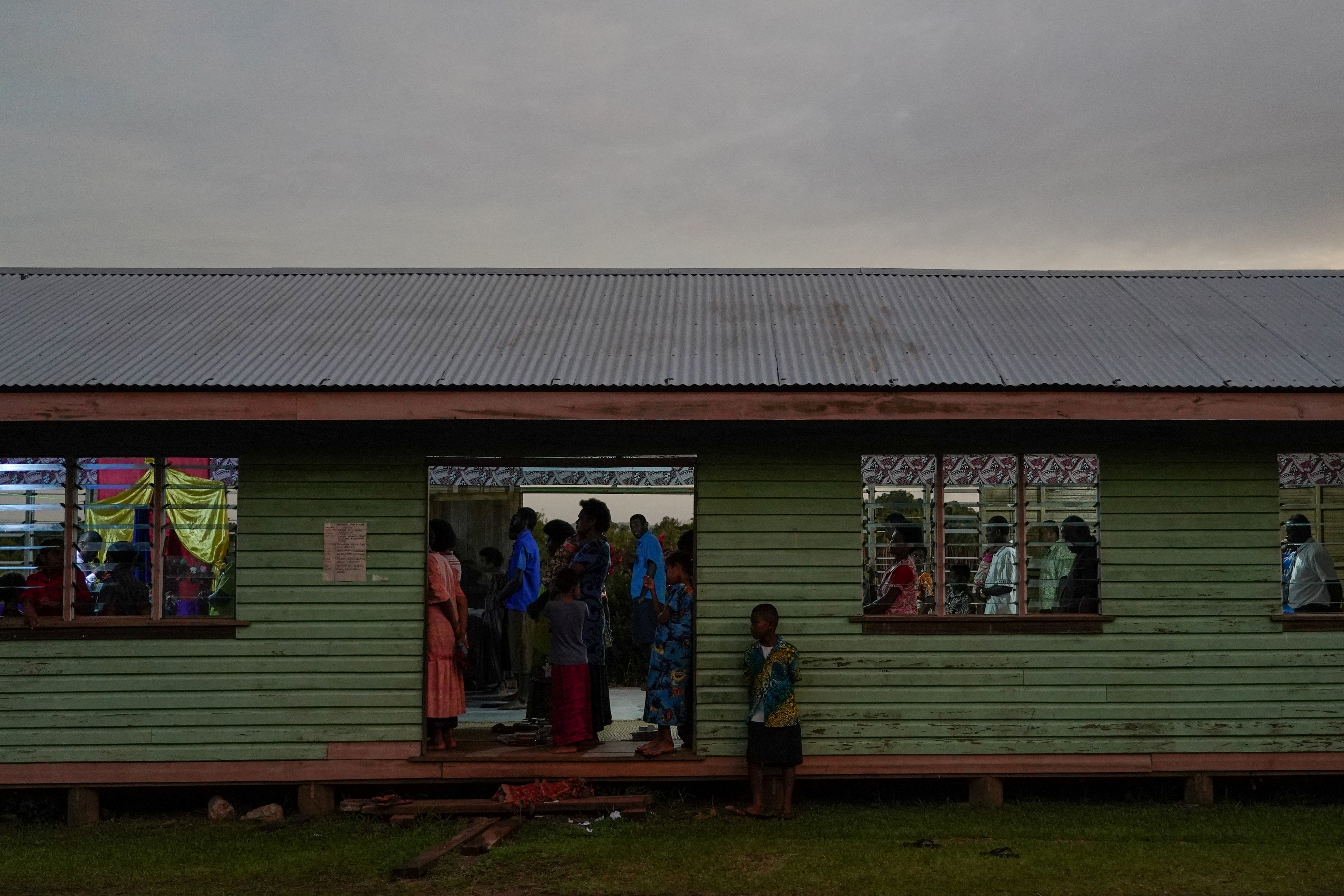
“You are forced to deal with the consequences of greenhouse gas emissions generated largely by the biggest-emitting countries, which are a long way from here. This is not a crisis of your making,” he said in a speech.
“We are going to have to find a way of having a substantive discussion on loss and damage at COP27.”
In 2014, Fiji, an archipelago of hundreds of islands some 2,000km (1,200 miles) north of New Zealand, became the first Pacific island nation to relocate a community because of rising sea levels.
Six villages have moved or plan to with government support, but a new process to prioritise the most urgent relocations is still under development.
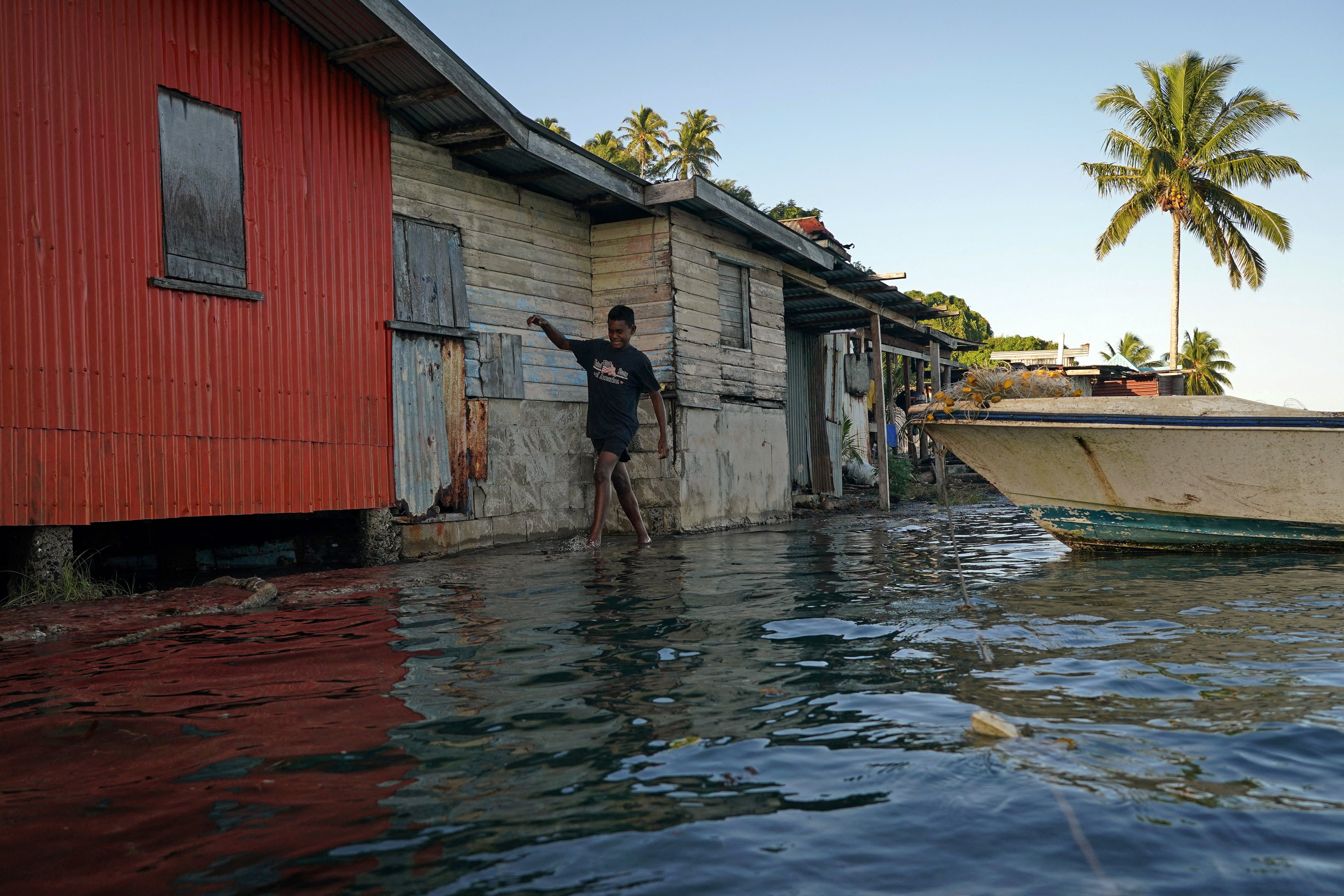
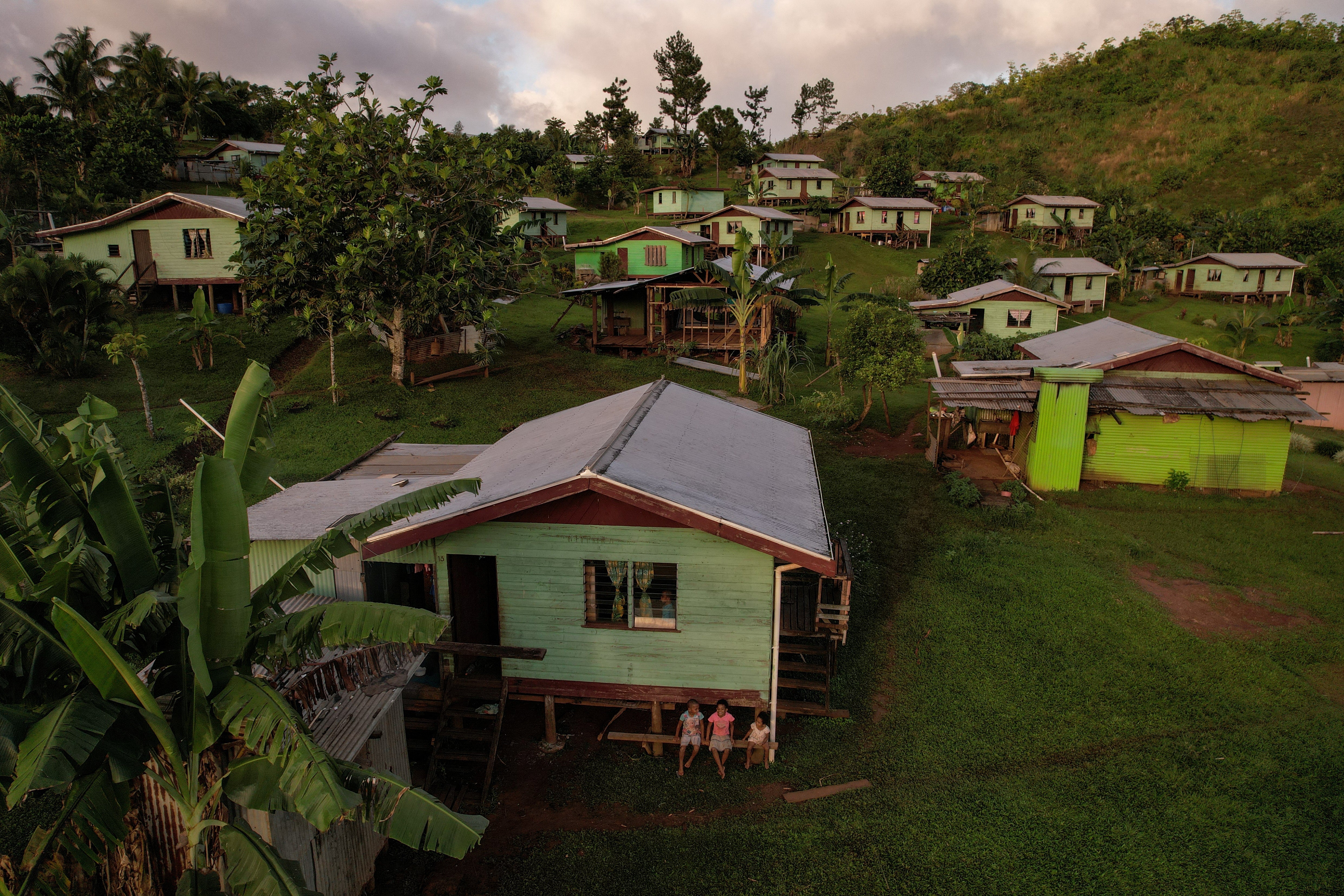
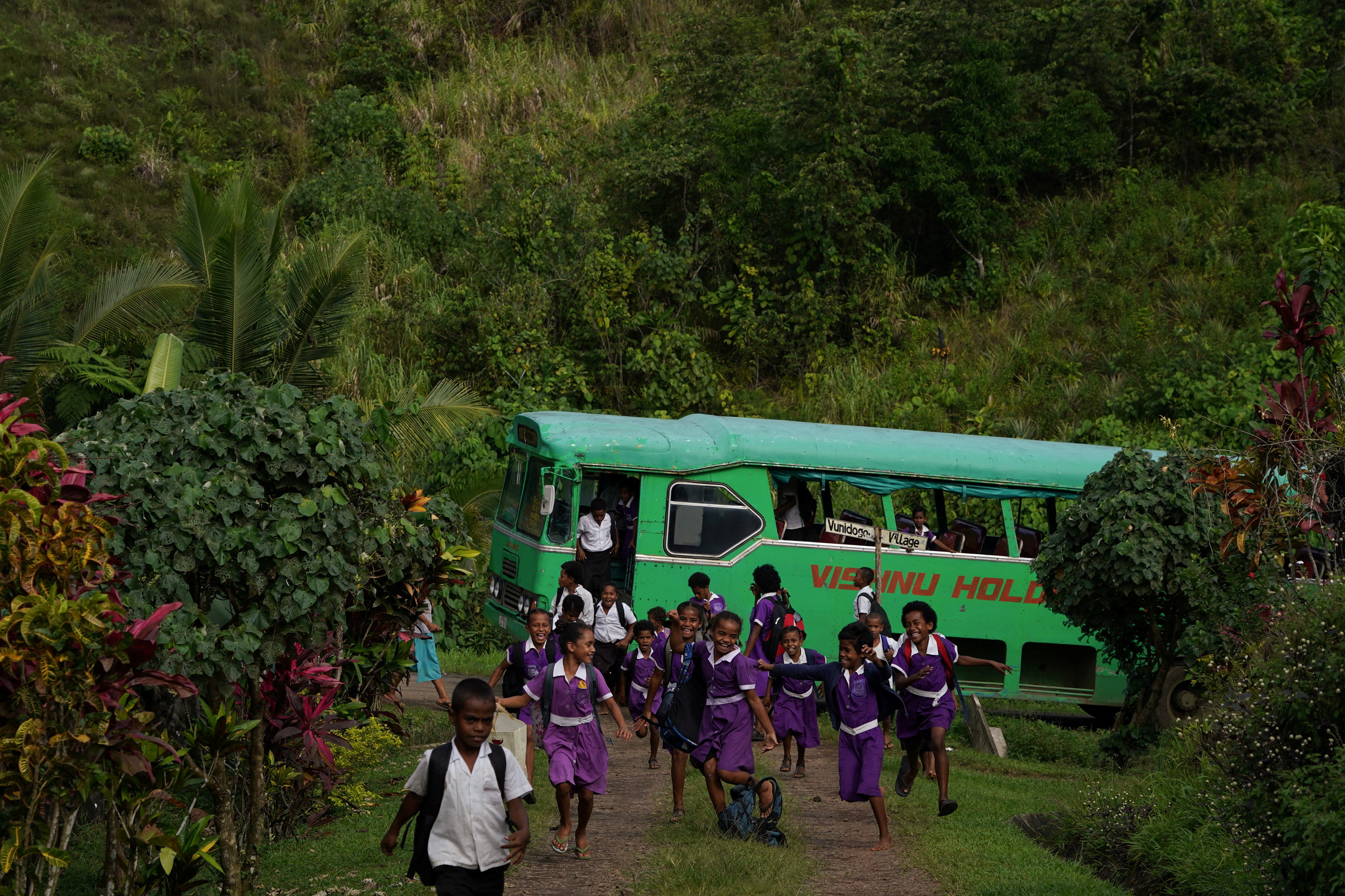
A further 795 will need to move, says climate youth activist Salote Nasalo, who says she loses sleep thinking about where they can go. Pacific youth will continue protesting against inaction on financing by the big emitters, says Ms Nasolo, a University of the South Pacific student.
The first community to relocate was Vunidogoloa, after villagers invited officials to see how they lived with water up to their knees. Saltwater had destroyed the ability of the 150 residents to grow crops, taking away livelihoods and food security, says former village headman Sailosi Ramatu.
In the new village, 1.5km (one mile) inland on Vanua Levu island, children now sit outside their homes, dry feet planted firmly on the ground.
Mr Ramatu, 63, says it took time to persuade the elders to move, but the village came together and listened to experts.
“We can also make a decision in the world if the leaders come together,” he says. “They should help us; they should pay for our loss and damage.”







